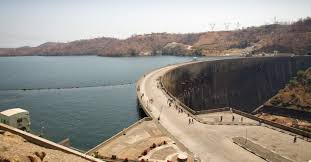Africa University sets up 4th applied sciences college
The CEAS joins the College of Business, Peace, Leadership and Governance, the College of Social Sciences, Theology, Humanities and Education, the College of Health, Agriculture and Natural Sciences and the School of Law.
AFRICA University has established a fourth College of Engineering and Applied Sciences (CEAS) to build a critical mass of science, technology, engineering and mathematics (STEM) experts to boost Africa’s tech-driven future.
The CEAS joins the College of Business, Peace, Leadership and Governance, the College of Social Sciences, Theology, Humanities and Education, the College of Health, Agriculture and Natural Sciences and the School of Law.
The recently appointed CEAS dean, Yogesh Awasthi said the inspiration to establish the college was to address societal needs.
“Engineering and applied sciences play a crucial role in addressing the pressing challenges faced by societies, such as infrastructural development, technological advancement, energy solutions, environmental sustainability and more,” he said.
“By establishing a dedicated college, Africa University plans to contribute to meeting the needs of the continent and its communities. Secondly, we are looking to promote economic development by educating and training engineering professionals who will go on to develop home-grown industries, innovate, and become entrepreneurs, leading to job creation and improved economic opportunities for individuals and the region.”
He continued: “Thirdly, we want to enhance technological capacity in Africa. By developing a strong engineering and applied sciences programme, we can help Africa foster technological advancements and enhance the continent’s overall technical capacity.
“By nurturing skilled engineers, the college can contribute to the development, adoption, and adaptation of new technologies, promoting sustainable development and competitiveness.
“Finally, we are also looking to the future where there is a considerable demand for such skills and capacity in this area. The long-term goal is to train, retain and innovate on African soil.”
The dean noted that STEM fields drive innovation, economic growth and job creation. By investing in STEM education and fostering a skilled STEM workforce, Awasthi said African countries could attract industries, promote entrepreneurship and participate in the global knowledge economy.
“STEM-related industries, such as information technology, engineering, biomedical, biotechnology and Artificial Intelligence have the potential to create high-paying jobs and contribute to sustainable development.
“Further to this, Africa University as a continental brand develops its programmes bearing in mind we live in an interconnected and technologically-driven world where STEM provides a common language for global collaboration and partnerships,” he said.
Awasthi believes STEM skills are essential for countries to remain competitive by equipping people with strong STEM education and skills, African nations can participate in global research and development, attract foreign investment and position themselves as hubs for innovation and technological advancement.
“Additionally, the current digital revolution has the potential to leapfrog traditional development pathways and accelerate progress in Africa,” he added.-newsday










